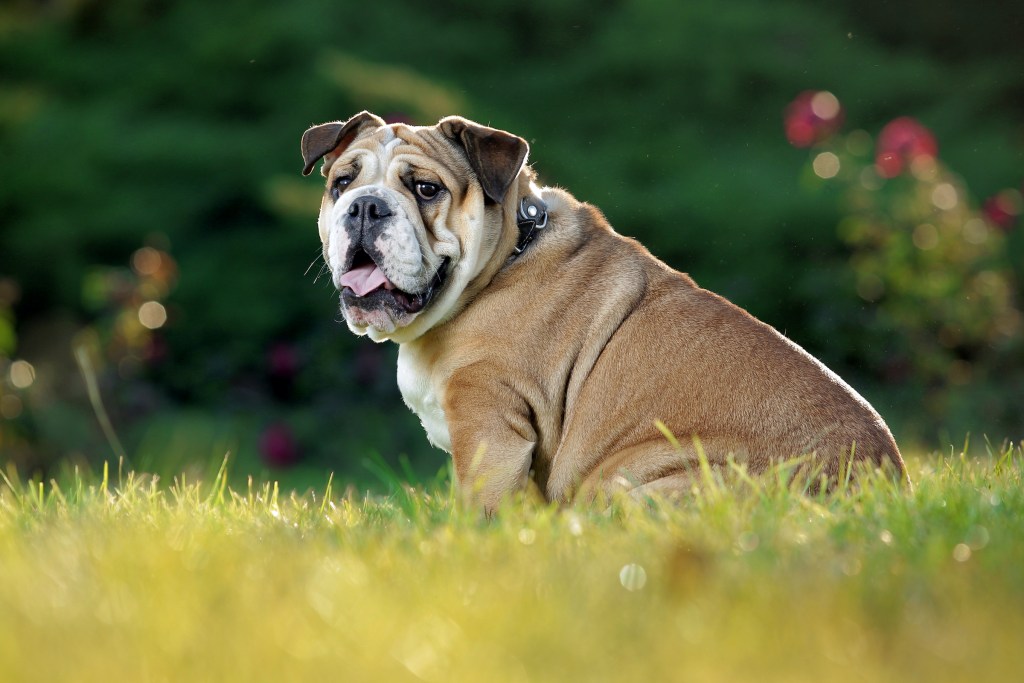When it comes to looks, bulldogs are incredibly distinct. No one can resist the sight of those sweet wrinkles, but there’s so much more about these dogs that you should know before deciding upon the right breed for you. Even if you’re looking for the sake of curiosity and not potential adoption, these bulldog characteristics and fun facts will give you a new appreciation for these pups.
From common behavior tendencies to health facts — including a few big concerns — we’ll go over everything you need to learn. For the sake of clarity, this article focuses on the English or British bulldog, which is the breed called simply “Bulldog” by the American Kennel Club. They aren’t to be confused with American bulldogs, French bulldogs, or any of the other bulldog breeds — there are quite a few!
What are bulldogs known for?
Much of the bulldogs’ fame comes from the breed’s extensive history. According to the American Kennel Club (AKC), these dogs were originally bred for the “sport” of bullbaiting, which is where many of the famous bulldog characteristics come from. Breeders aimed to create a dog with a broad head, fearless nature, and loose skin that could aid in bullbaiting. Thankfully, this grisly activity was banned in the 19th century and has been obsolete since.
Around the mid-20th century, the bulldog became a symbol of England and its fiery Prime Minister Winston Churchill. While many go as far as associating the dog with Churchill’s jowly look, it’s said the prime minister preferred the company of poodles (via AKC).
Unfortunately, there are several health issues that bulldogs are known for, too. For example, this breed, as well as their relatives, account for the majority of cesarean sections performed in vets’ offices. Dr. Patty Khuly, VMD, told Vetstreet that this is because of the breed’s large head size, which is a product of selective breeding.
Bulldogs are also extremely prone to respiratory difficulties, which we will expand on below.

What are bulldogs’ best and worst traits?
One of the bulldogs’ worst characteristics is that they are brachycephalic (short-muzzled with a flattened face). It may be cute, but it often comes with complications like a narrow windpipe and collapse of the larynx, or voice box, according to the Universities Federation for Animal Welfare (UFAW). The UFAW estimates that all English bulldogs have complications from brachycephaly to at least some degree since this breed is the most severely affected. You may notice your pup having difficulty sleeping, low tolerance for exercise, or more severe breathing problems.
These health concerns, whether big or small, can add up to some costly vet bills. This is all on top of food, toys, and other pet supplies you’ll have to buy, so make sure you’re ready to take on all aspects of pet care before bringing your bulldog home.
On the upside, bulldogs can make wonderful companions in a variety of homes. According to Hill’s Pet, these pups make great apartment dogs thanks to their low-to-moderate need for exercise. They won’t do well in warm climates, though, so make sure to invest in air conditioning if you live somewhere hot.
Bulldogs tend to be low maintenance, too. Aside from giving their wrinkles and skin folds a wipe a few times a week — as well as regular baths — you won’t need to worry about much brushing or grooming (via Hill’s Pet). If it’s still a concern, you can try products like Wrinkle Wipes to make it a bit easier for you and your dog. Even better? Bulldogs are fairly low shedders!
Are bulldogs aggressive?
As family pets, English bulldogs tend to be both affectionate and courageous. Hill’s Pet lists this breed as loyal, curious, and people-oriented, though they can also be suspicious or protective around strange dogs. It’s important to note that bulldogs still retain some of the tenacity of their bullbaiting ancestors, too, but what you do with that courage is up to you. Many bullies will be diligent watchdogs, which lets them put some of their rambunctious characteristics to good use.
Of course, the breed isn’t everything. Even though most bulldogs tend to share some of the same characteristics, there’s no guarantee your pup will act anything like their littermates or parents. Personality and individuality are two reasons we love our dogs, after all!
Even so, educating yourself about the bulldog breed will give you the skills you need to keep your buddy healthy, happy, and as adorable as ever. Who could ask for more?




